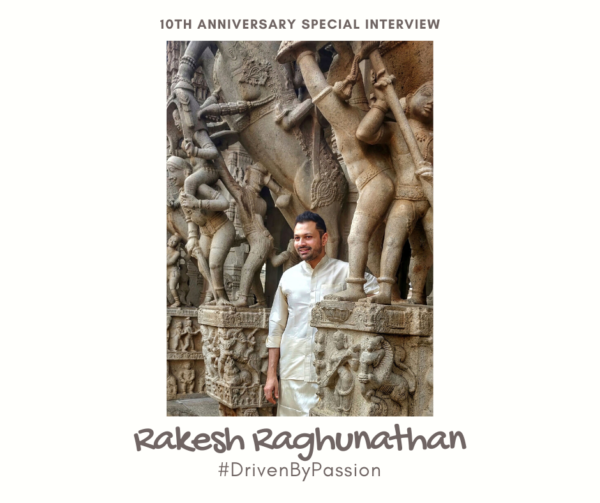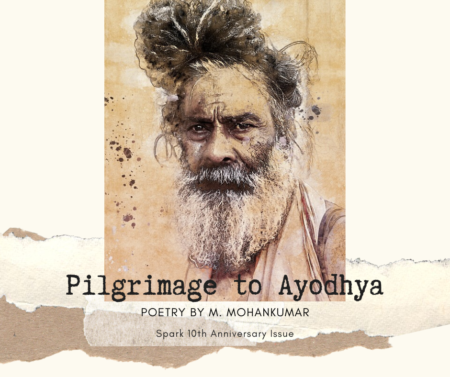An interview with Rakesh Raghunathan
An interview with food and culture raconteur, Rakesh Raghunathan, on his love and passion for all things ‘food’, and the phenomenal work that he does in this space!
Rakesh Raghunathan is a food and culture raconteur, with a deep and abiding interest in food history and practices, and its interaction with socio-cultural norms. He is a full-time food traveller and historian. His travels so far have taken him to the far-flung nooks and corners of South India’s towns and villages, to discover a vast repertoire of indigenous food, and a body of culinary knowledge and practices. He also runs a popular food and travel blog called Puliyogare Travels that uses food and travel as lenses to look at and understand diverse communities. To know more about Rakesh and the work he does, check out his website www.rakeshraghunathan.com
You are extremely passionate about food and cooking. What is it about food that draws you to it and what sparked your interest in cooking?
As a kid, when most of my friends were into sports, I was literally on the other end of the spectrum! I enjoyed watching food shows. I enjoyed cooking and being in the kitchen. Given a choice between an India-Pak cricket match and a food show, it was the food show that I chose, obviously, and I am still like that! I would say I began to have a keen interest in food right from that time, which I have articulated for myself over the last few years. I feel I am connected with food in a very special, intellectual way. I think what sparked my interest in cooking was being away from home, when I went for my B-school degree. Not having home food, not having my mom around to pamper me with the kind of food she was doing when I was in India – that kind of got to me. Moreover, I have generally been someone who loves eating, who appreciates the nuances in food – be it in the spices, or the stories surrounding food, or just watching my mother and grandmother cooking in the kitchen! It was especially a sight to watch my paati cook because she would regale us with stories of her childhood and what she did in the kitchen. So I would say all that continues to play a dominant role in what I do, even today!
In your shows, trails and workshops, how do you bring in diverse socio-cultural influences on food? What are some of the most exciting things that you have unearthed about food and socio-cultural norms in this process?
People usually associate me with temple food and the research that I have done in that space, but I also have an equal amount of focus on tribal food. Temple food is typically very rich with lot of opulent items that go into making it. Tribal food, on the other hand, is very, very frugal and rustic and this is something I have observed from the work I have done on the food of the Irulas, Kurubas, Badagas, Todas and the Paliyan tribal community. Most importantly, the food of these tribes have incredible stories of evolution, of availability of ingredients and resources, cooking techniques, and what not! So I think food is a great leveller and when we speak about socio-cultural influences, these two ends of the spectrum is something I am deeply intrigued about.
I also would like to share something which showed me how food brings people together, the incident that precisely sparked my journey into researching about food. Few years ago, when on a solo trip to Tirunelveli, I saw some farmers celebrating that year’s harvest. Close to where that celebration was going on, there was a community kitchen sort of thing happening. I saw that people from that village and nearby villages had come together and everyone, irrespective of their caste, religion and social status had brought in something for the recipe – someone gave rice, someone gave lentils, someone gave the spices, firewood, oil and so on. They had pooled their resources together and were cooking a dish, which I later came to know was called the koottan choru. The food that was prepared that day came from a recipe that was put together by people of different communities and socio-economic conditions. Once the food was ready, they sat together and ate what they had prepared. I realised that food has the ability to cut across layers in the society and I would say that that was a starting point in my life where I thought to myself, this is exactly what I should be doing – documenting food, documenting culinary history and heritage, stories of unsung heroes and recipes that have a story to tell.
Tell us about your other passion, music, and how you blend your passion for music and food together.
I love singing and am absolutely in love with Illaiyaraja’s compositions. I also am trained in Carnatic music and used to learn with Shri. Vijay Siva. I typically bring in food and music together when I do my thematic presentation on temple food which I call ‘Sacred Offerings’. So, in ‘Sacred Offerings’, I talk about the temple, and the mythology and legends associated with it. Then, in another segment, I go into the actual prasadam that is made in the temple, the culinary history behind the recipe, the ingredients that it’s made of, and if the prasadam is mentioned in ancient texts, like the pasurams, the Divya Prabandhams or any other ancient literature poetry, I try and tune that into a song and sing it in my presentation. My goal is to, at some point, bring in Sangam literature as well, because Sangam is incredible when it comes to food! There is great insight on what kind of food was available, what kind of food they ate. So I am hoping I will get to it at some point where I can sit in one place and put my time together to go over the Sangam literature poems as well.
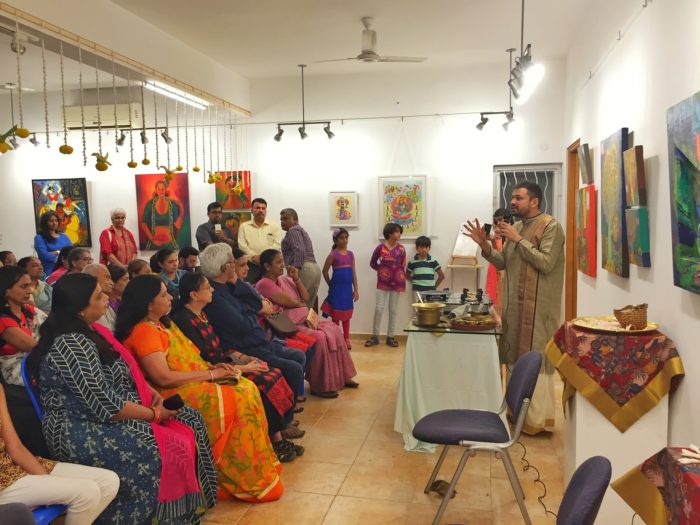
Let’s talk about your recent web series Ammavum Naanum. How was the idea born? What are some of the things you have been on keen on showcasing through this series?
Ammavum Naanum is more like my way of saying thank you to my mom because over the years, she has spent all her time making fantastic food for us, and we have always taken it for granted. And, this is not just in my mom’s case. I think every household has a person like this – it could be your mother, grandmother, grandfather, uncle or aunt, or anyone.…. When I began thinking about Ammavum Naanum, one of the goals I had in mind was to definitely go back in time and recreate these recipes that have been forgotten; but the bigger idea was to also invoke some amount of nostalgia, fond memories, and bring about conversations revolving around food. So if you look at the comments, I am overwhelmed because everybody has something nice to say – they have shared that it reminds them of their grandmother, or it takes them back to their roots, and I have been hearing from people living in India and abroad! It has touched a chord because the series is pretty much ammavum, naanum…my mother and I…there’s nothing fake about it, there’s nothing scripted, there’s nothing put on, it is something from our hearts; with me genuinely curious to bring out these hidden gems, these recipes, and get my mom to showcase them the way she has been doing it to us. That has really worked well with the audience that has been watching, and I am really overwhelmed by the response.
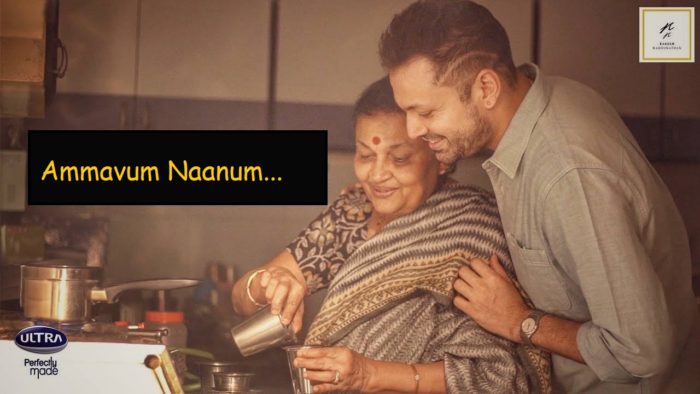
Do you collect utensils of different kinds too? Tell us more about it.
Yes, I do. In fact, my studio space is filled with utensils. I have much more in the attic but I have refrained from taking them out because my parents have warned me that it would look like a paathra kadai (a utensils shop)! But I still collect utensils wherever I go. Looking at my utensils brings back fond memories and I’m sure that’s true for many people. So sometime ago, I did something called ‘Utensils and Stories’. I just opened out my studio space one evening and asked people to bring the utensils they had at home. It could be ten years old, or twenty or even hundred! The idea was to bring about a conversation around utensils. People spoke so much and I was touched that it invoked some amount of nostalgia in them because they fondly recalled things like how their grandmother would make arisi upma in a vengala paanai. Some people spoke about the history behind those vessels – when it was used, some spoke about the metals, some spoke about how only certain ingredients could be used in some of the vessels…so there were lot of interesting snippets and anecdotes that came out that evening. And I was very glad to have done ‘Utensils and Stories’.
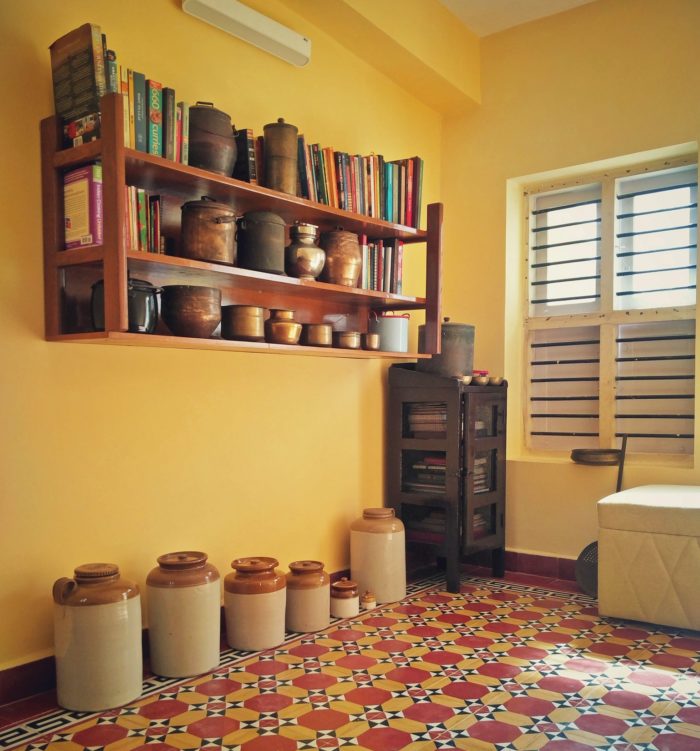
Where do you see your passion for food taking you in the new decade? Share with us your future plans!
Definitely a lot of food. A lot of content on traditional food, heirloom recipes and recipes that have stories to tell. I have also been doing corporate training workshops—more like team building workshops—using food to train senior executives of a company about how it can bring people together and how food can help in effective communication. My workshops have also focused on bringing about the nuances – in understanding food, food appreciation, food pairing, food festivals. My dream is to bring together all of what I do in the form of a culinary heritage foundation, which will be a repository of anything to do with food, food history, food culture, and bringing to forefront the unsung heroes in every town, every household, who have these recipes that have been passed on to them over several generations – those that we have taken for granted and never really appreciated. So the culinary heritage foundation will deal with food in a very intellectual and structured way. This has been on my mind for a while and I think I am ready for it in 2020; so fingers crossed, hopefully something should happen on that front!
(Interview by Spark Editors)

